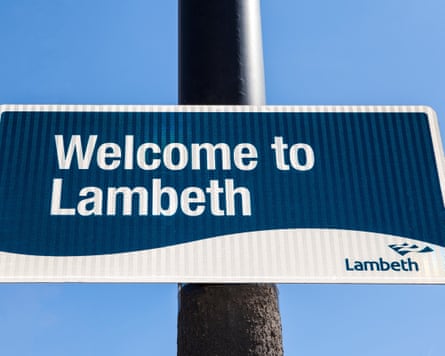UK Labour Councils Face Scrutiny Over No-Fault Evictions Amid Ban Pledge

Labour-run councils have used a legal loophole to issue almost 200 families with no-fault eviction notices since the party was elected on a promise to ban the practice, a Guardian investigation has found.
Scrapping these orders, widely known as Section 21 evictions, was one of Keir Starmer’s main pledges before last July’s general election. However, more than a year later, these eviction mechanisms regrettably remain lawful.
While local authorities typically cannot carry out no-fault evictions themselves, these are permitted if renters hold an assured shorthold tenancy, a common type of rental agreement in the private sector. A concerning trend reveals some councils circumventing this restriction through arm’s-length companies established to manage their housing portfolios.

Since Labour assumed power, companies directly owned by five of its councils have initiated no-fault eviction proceedings against a staggering 191 households. This has resulted in several renters facing court action, with some eventually removed from their homes by bailiffs.
The Guardian previously reported that Lambeth council, located in south London, was engaging in this practice through Homes for Lambeth, a company it established in 2017 and is currently in the process of disbanding. Lambeth council alone has issued 63 no-fault eviction notices since last July, leading to five households receiving possession orders through the courts and two being removed by bailiffs.
Lambeth council defended its actions, stating it faced “incredibly difficult choices” and opted to use these properties to house individuals already experiencing homelessness. However, this decision raises significant questions regarding the party’s commitment to its housing pledges.
The Human Toll of Evictions
The human impact of these evictions is profound. Jules Zakolska, 27, articulated the severe trauma experienced by tenants confronting the prospect of temporary accommodation, noting that some individuals were driven to suicidal thoughts.
Further documents reveal that Lambeth council deliberately delayed the full implementation of this plan, deeming it “too controversial” to undertake “during the pre-election period.” This suggests a calculated strategy to avoid public scrutiny during a politically sensitive time.
Beyond Lambeth, a Guardian investigation has unveiled that four additional Labour-run councils—Reading, Blackpool, Nottingham, and Enfield—have also issued Section 21 notices through their arm’s-length housing bodies.

Reading Council: From Key Workers to Homelessness
Reading council in Berkshire announced plans to close its housing company, Homes for Reading, just two weeks after the general election. Since then, 48 households have been served with no-fault eviction notices, with 20 already vacating their properties.
Many of these vacated homes, initially designated for key workers, are now being repurposed as temporary accommodation for homeless individuals. Ironically, some families evicted by Homes for Reading have subsequently found themselves in temporary accommodation elsewhere in the town, highlighting a deeply problematic cycle.
Charlene Flygring, 38, illustrates this predicament firsthand. After receiving a no-fault eviction notice in May, she and her four-year-old son, Rion-Aziah, were placed in a bedsit, where they share a bed and lack a functional washing machine. “Everything seems very hopeless at the moment,” she lamented. “This place is vile. You either have to accept the offer of temporary accommodation, or you’re homeless. We hate coming back here.” She questioned why her previous apartment, which she cherished, couldn’t be used as temporary accommodation, allowing her to remain near her son’s school.

A Reading council spokesperson clarified that the decision to close Homes for Reading was a “last resort,” necessitated by changes to local authority lending rules and broader economic challenges impacting the company’s “viability.”
The spokesperson further explained, “The HfR properties have been bought by the council’s housing revenue account, the legislation for which requires vacant possession at the point the properties are acquired.” While some are temporarily utilized for urgent homeless cases, the long-term objective remains their use for key worker housing.
The council emphasized its efforts to support tenants in securing alternative housing, including the provision of dedicated homelessness prevention officers.
Blackpool and Nottingham: Varied Justifications
Blackpool council, through its arm’s-length body Blackpool Housing Company, has issued 73 no-fault notices since the Labour government took office. This has led to 15 possession orders and three bailiff-led evictions. The council often employs these notices to address issues like drug use and antisocial behaviour, despite the availability of alternative eviction notices specifically designed for breaches of rental agreements.
Blackpool Housing Company asserted that no-fault evictions are considered a “last resort” and frequently lead to sustained tenancies through proactive support. In the rare instances where evictions occurred, the company stated that extensive support and engagement efforts were reportedly declined by the tenants.
Nottingham city council’s subsidiary of Nottingham City Homes, established in 2017, also engaged in issuing no-fault evictions. Following the disbandment of both organizations in 2022 due to a £50 million misuse of housing funds, eviction proceedings continued. Since Labour entered government, two no-fault eviction notices have been issued, two possession orders sought, and one property seized by bailiffs.
A Nottingham council spokesperson confirmed that enforcement action was initiated only after an extended period was granted to allow the tenant ample time to relocate. The council underscored its “strong emphasis” on supporting tenants throughout the process and providing “flexibility around notice periods wherever possible,” adding that no further no-fault evictions are currently planned.
Enfield Council’s Eviction Record
Enfield council, located in north London, operates My Housing Gateway, a housing organization that leases properties from its own stock and manages rents on behalf of private landlords. The council reported five no-fault eviction notices issued since last July, all of which ultimately led to removals by bailiffs.
Government’s Stated Position on Evictions
A spokesperson for the Ministry of Housing, Communities and Local Government reiterated the government’s stance: “Section 21 ‘no-fault’ evictions are unacceptable. That’s why we’re banning them through our landmark renters’ rights bill, which is set to become law very soon.”



